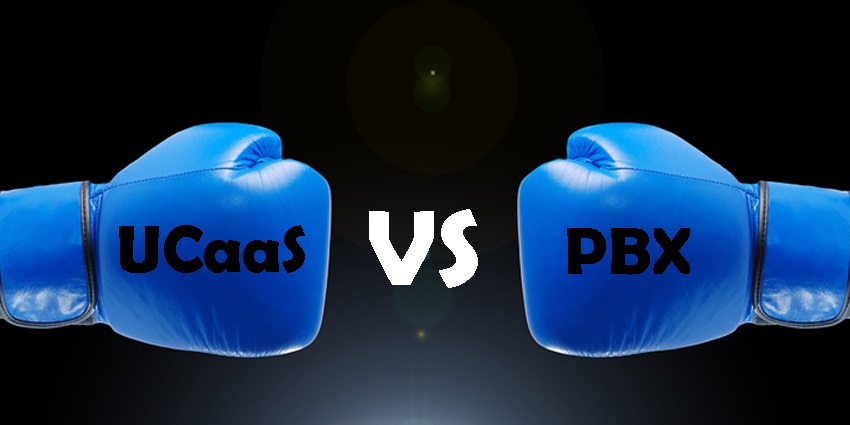Effective communication technology is crucial to the successful operation of any business. It ensures employees can connect and collaborate effectively, as well as providing companies with an avenue for reaching and converting customers. In today’s world, there are various ways for organisations to implement communication systems.
The chances are, even if you’re not responsible for purchasing the technology in your company, you’re familiar with terms like PBX, and UCaaS. However, many professionals aren’t entirely sure what the differences between these solutions are.
Let’s take a closer look at the difference between PBX and UCaaS technology.
What is a PBX? Introducing the PBX
PBX in the communication landscape stands for “Private Branch Exchange” or “Public Branch Exchange”. Before modern collaboration applications emerged in the marketplace, almost all communication occurred through a phone system in the office, known as a PBX. The PBX is a traditional, analogue phone system used to connect all office desks together.
The PBX in a business is connected to the standard phone lines from a service provider, known as “POTS”, or the Plain Old Telephone Service. Using extensions, PBX systems can direct calls from a main office to specific handsets. There are various types of PBX today, such as:
- The analogue PBX: An analogue PBX system is the “traditional” business grade phone solution, which links the PSTN and POTS to the business environment. They allow for incoming and outgoing voice calls. Most analogue PBX solutions aren’t capable of advanced dialling and calling capabilities, and they require users to be in the office to access a line.
- IP-PBX Solutions: As the world digitally transformed, vendors began introducing PBX systems which could work over a local network. This allowed companies to connect two phone systems over the internet, and support remote work.
- Hosted PBX: The hosted PBX is a cloud-based solution, where hardware connected to the system is maintained and managed off-site. This removes many of the maintenance and training requirements of a traditional PBX. Hosted PBX vendors handle all of the hardware, software, maintenance, security, and updating requirements.
The Benefits of PBX Technology
Perhaps one of the biggest benefits of PBX technology is its relatively simple to set up and access. Most companies already have a PBX system in place. Additionally, because most PBX solutions are purchased up-front, it’s easy to budget for the associated costs, and ensure a considerable return on investment. The hardware is also robust, so it can often last a long time.
Depending on the type of PBX technology chosen by a company, a PBX solution can offer everything from managed and co-located support systems, which reduces the need for in-house maintenance. PBX solutions are also ideal for companies who want to access long-term contracts, as they’re often purchased with multi-year licenses.
Unfortunately, PBX technology isn’t very flexible, which can be a problem for today’s agile business leaders. The technology also comes with a hefty price tag, particularly for those who need to purchase hardware from scratch. Unlike with UCaaS solutions, adding extra users to a PBX system can also be complicated, time-consuming, and expensive.
What is UCaaS? Unified Communications as a Service
UCaaS is a more modern communication solution for today’s evolving and distributed businesses. Otherwise known as “Unified Communications as a Service”, UCaaS is a cloud-based solution which combines multiple communication tools into a single comprehensive platform. With UCaaS, companies can integrate voice, data, text, and other communication channels into one tool.
UCaaS infrastructure is operated, owned, maintained, and delivered by a specific provider. It can offer multitenancy features, as well as self-service web portals for provisioning, managing tools, and accessing performance and usage data.
UCaaS technology has grown increasingly popular in recent years, as companies search for a way to unlock more agile and flexible solutions for communications. The unified communication system supports everything from unified messaging, to meeting technology, enterprise telephony, mobility capabilities, and more in one streamlined system.
As UCaaS has grown more attractive to business leaders, the technology available from platform providers has evolved. In recent years, companies have begun adding new services and solutions to the UCaaS stack, including team collaboration tools, artificial intelligence, virtual assistants, in-depth analytics, and recording or reporting systems.
Some UCaaS solutions can even offer integrations with other “aaS” offerings. For instance, many providers now give companies the opportunity to connect UCaaS systems with CCaaS (Contact Centre as a Service) and CPaaS (Communication Platforms as a Service) capabilities.
What are the Benefits of UCaaS?
UCaaS offers infinite flexibility, and the potential to reduce costs in the communication landscape. It’s widely considered to be the “next step” for communication technologies by many market leaders. With a UCaaS platform, companies can unlock almost unlimited functionality, particularly when vendors offer API access and integrations.
UCaaS systems are also inherently reliable. If a premise-based PBX failed for any reason, such as a power outage or natural disaster, the entire phone system would go down. However, UCaaS tools allow companies to stay running no matter what, thanks to a flexible cloud environment.
UCaaS technologies are scalable too, providing business leaders with the opportunity to add users and features into their system with minimal effort and cost. Anyone can immediately set up a new user or group within their UCaaS platform using a remote cloud-based portal. Plus, anyone can be given access to the UCaaS system, regardless of where they are. This empowers business leaders to unlock the benefits of hybrid and remote working.
Which is Best? PBX vs UCaaS?
The PBX is widely regarded as the traditional solution for communications, embraced by countless companies around the globe. However, even as the types of PBX technology continue to transform, the flexibility of this solution can be extremely limited.
For companies in search of flexibility, easy access to the latest tools, and rapid innovation, UCaaS offers far greater benefits. It’s the simplest way for businesses to connect all of their communication systems in one place, and drive exceptional productivity, without excessive costs.







